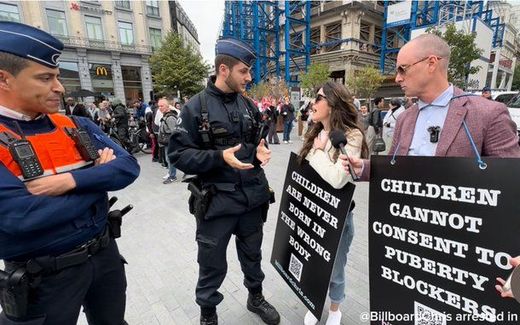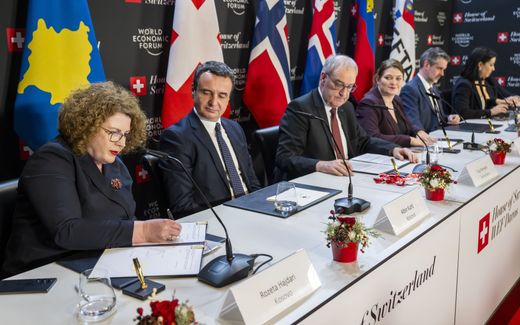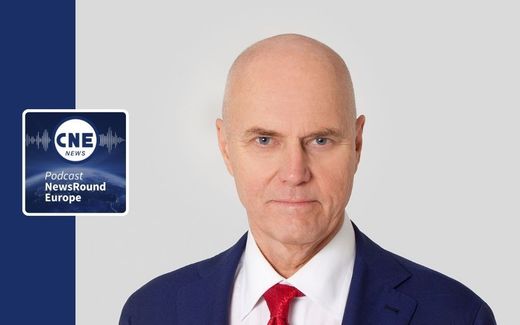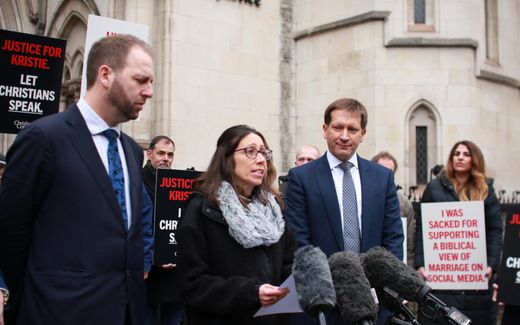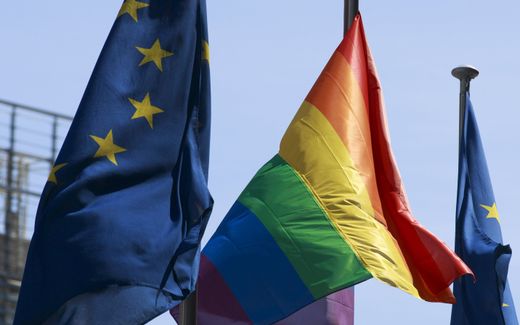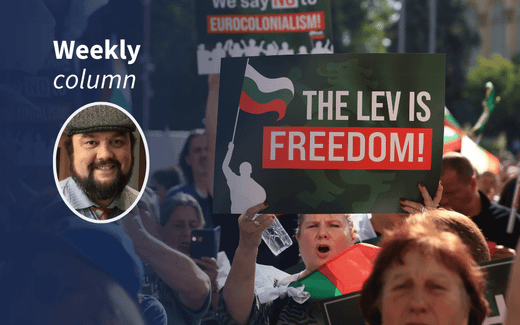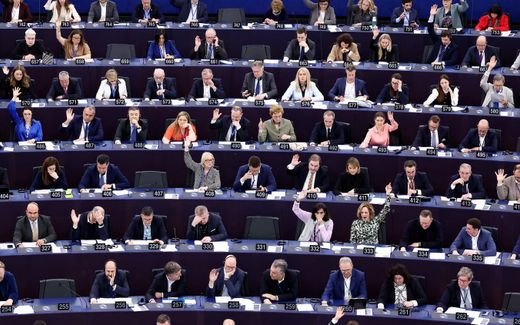Swedish JWs are curtailed by government; is this how the EU's Democracy could function?
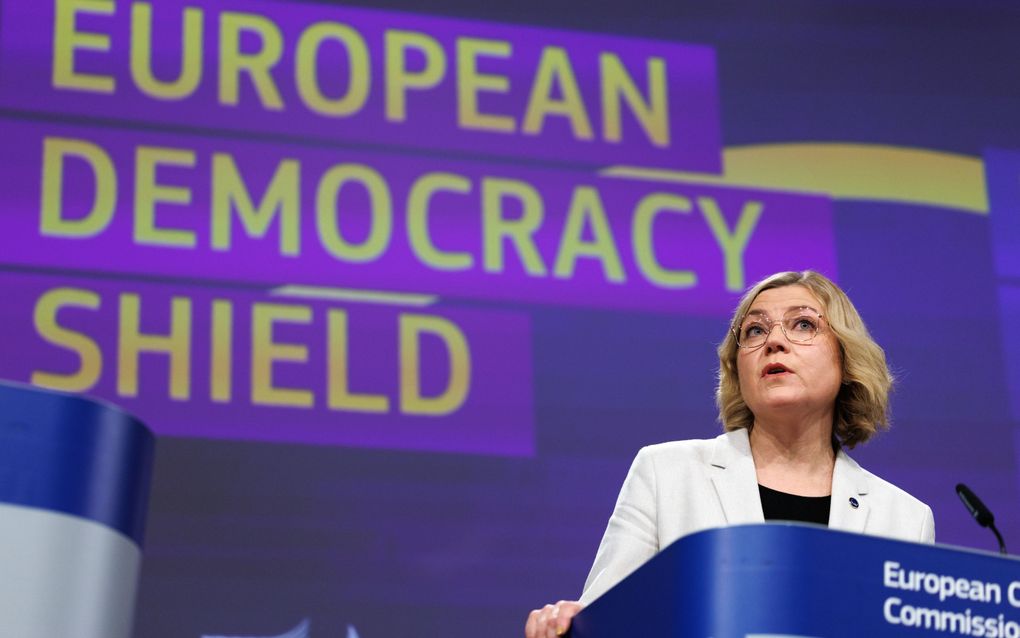
Henna Virkkunen who is the European Commission's Commissioner for Tech Sovereignty, Security, and Democracy presents the EU's Democracy Shield at a press conference. Photo EPA, Olivier Matthys
European Union
The European Commission’s Democracy Shield is meant to protect the EU against threats to democracy. But the initiative itself has left some Christians concerned if it will violate their right to free speech.
The financial curtailment of the Swedish Jehovah's Witnesses might be an early example where this could lead to.
Earlier in November, The European Commission unveiled the initiative, “European Democracy Shield” which is aimed at addressing the current challenges that are undermining democracy.
The objectives in the initiative include monitoring incoming information by creating the European Digital Media Observatory and bringing in fact checkers to combat misinformation and disinformation. Both measures have set off alarm bells among various organisations, particularly the legal organisation, Alliance Defending Freedom (ADF International).
Despite some media suggesting that the initiative had been “watered down,” ADF has fought back that claim by saying that control over media and information will be left in the EU’s hands if the Democracy Shield is enforced.
They explain further that the initiative “centralises EU control over information flow, expands DSA-era (Digital Services Act) censorship powers, and politicises fact-checking and media funding — reshaping ‘democracy protection’ into managed speech,” they explained further in a Gript report.
Safeguards
ADF additionally criticises the idea of hiring a network of fact-checkers and believes that anyone can “flag content” as an “entity or individual” under the guise of combating disinformation and information interference. This new class of fact-checkers raises serious concerns regarding “politicisation” and could open the door for actors to have “disproportioned influence” over what is being said, says Adina Portaru in a written statement to CNE. Portaru is a Senior Counsel for the European branch of ADF International.
The Shield, she adds, lacks safeguards, and such a situation could open the door to increased oversight. Any of the EU’s controls would create an imbalance of power between institutions and citizens.
She also warned that the initiative is not intended to be EU-based but part of a larger model that can be applied globally.
Policymakers have admitted in the past that the Shield can not only be used within the EU but can serve as a model that can be exported abroad, she says, particularly when it comes to the global South. This raises wider concerns of increased regulation on an international scale. And because of this potential threat, we need more “rigorous democratic and legal scrutiny” before it can be applied globally, Portaru notes.
Defending democracy
Despite concerns from ADF, several members of the EU Commission back the initiative including Michael McGrath, who is Ireland’s Commissioner and Commissioner for Democracy, Justice, the Rule of Law and Consumer Protection. “Defending democracy is our first line of defence against rising political confrontation, regional and global conflicts, and rapid technological disruption,” he says in a Gript report.
Democratic definitions
While the EU is spearheading a centralised approach, national governments are also taking the lead in enforcing the definition of democracy. And in some cases, this has had impact on faith communities.
After the Swedish government introduced “democratic conditions” in January 2025, the nation’s Jehovah’s Witness community has been dropped from receiving government grants. The assessment agency, Swedish Agency for Support to Faith Communities (SST), denied the community’s application. It determined that the JW community did not meet the current democracy criteria after the community answered that it could exclude individuals because of “their choice of a life partner” as reported by Dagen. The SST then asked a follow-up question to the assessment.
They wanted to know if an individual could be a “homosexual” and still be eligible for membership or if that person could be “disfellowshipped” because of their same-sex relationship. After receiving no response, the SST determined that the Jehovah’s Witnesses were ineligible for state funding.
SST authority, Isak Reichel says in the Dagen report that their decision was based on the possibility of “promoting or inciting threats of harmful consequences” for those who can be expelled or want to voluntarily leave. Family members of the excluded individual could also be included within that threat, Reichel notes. At the same time, he also says that SST’s final decision was not based on their application responses alone.
Reichel goes on further to say that religious communities can still “draw a line” when it comes to their beliefs and still be eligible to receive funding. For example, a congregation could declare homosexuality to be a sin, but “excluding people based on their life partner is a problem,” he says.
It is expected that the Jehovah’s Witness community will appeal the SST’s decision.
In the gears
In addition to Sweden, ADF’s Adina Portaru also noted that the Christian community and its leaders throughout Europe have increasingly “been caught in the gears of European censorship mechanisms” within the last ten years.
For example, Finnish parliamentarian Päivi Räsänen faced her country’s supreme court after being accused of hate speech because of a Bible tweet that was deemed “homophobic.” The Democratic Shield, Portaru also points out, has the power to affect the future of freedoms for Christians within Europe.
In an ADF letter that was written to the European Commission, over 3,000 figures in academia, government, journalism and other fields have signed it and called on the European Commission to “consult free speech experts”, as mentioned in a press release by the ADF. One of those figures included the former VP of Yahoo Europe.
The letter says that the “wide definition” of what is considered illegal content and the Shield’s application on an EU-wide scale creates “the lowest common denominator of expression.” The signatories also call on the European Commission to disclose its actors.
“Publicly disclose the list of NGOs, civil society actors, and partner entities engaged in the review process, including the criteria and methodology used for their selection,” the letter says.
CNE reached out to the European Commission for comment, but they could not be reached.
Related Articles


